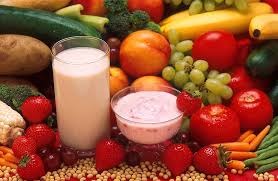
We all know that healthy eating boosts our physical health. However, most people don’t know that it enhances our mental health as well. A balanced diet that incorporates healthy foods can help you feel more alert, improve your concentration ability, and boost your thinking clarity. Conversely, an unhealthy diet can lead to a decreased ability to make decisions and fatigue. Sometimes, an unhealthy diet can even lead to depression and stress.
Eating healthy foods can boost your mental functions and help manage depression and anxiety symptoms. Below are six foods that can improve your mental health and ensure that your mind is working effectively:
1. Lean proteins
The foodstuffs we consume are broken down into two; chemicals that assist in the effective communication between parts of the body and the nervous system and chemical constituents used to develop neurotransmitters. The most abundant substances in the body are carbohydrates, followed by proteins. Tryptophan, amino acid and a building block for proteins can affect your mood by aiding in serotonin production, which is linked with depression. Sources of lean protein such as chicken, turkey, fish, beans, and eggs can help balance serotonin levels reducing anxiety and depression symptoms and improve your overall mental functioning.
2. Fatty fish
Today, most people’s diets contain high levels of saturated fats and trans fats while low in omega 3 fatty acids such as EPA and DHA. Saturated fats and Trans fats can negatively affect the brain and mental health. Since a large percentage of the brain is made up of fats, and the body cannot manufacture the essential fatty acids for brain improvements, the brain relies on omega 3 from our diet to meet its needs. Research has shown that Omega 3 rich foods such as herrings, salmon, and sardines help reduce depression and schizophrenia symptoms. Omega 3 also boosts memory and improves the brain’s learning capacity.
3. Fermented foods
Fermented foods such as kefir, yogurt, pickled vegetables, and kimchi contain healthy bacteria- probiotics that impact the stress hormone, reducing anxiety. Probiotics also affect the GABA neurotransmitter. On the other hand, consuming unhealthy processed foods can lead to an imbalance of harmful and healthy microorganisms in the gut.
4. Leafy greens
Leafy greens such as romaine, spinach, mustard greens, broccoli, and turnip contain folic acid. Lentils and beets also contain folic acid. Deficits in specific B vitamins and folates are linked with insomnia, fatigue, and high depression rates. Broccoli contains selenium, a mineral that boosts the immune and reproductive systems and the thyroid hormone. Research has linked low selenium levels with increased fatigue, anxiety, and depression. Whole-grains, Brazil nuts, walnuts, seafood, onions, and chicken are also sources of selenium.
5. Whole grains
Glucose, which comes from starches and carbohydrates, is the primary source of energy for the brain. Simple carbohydrates can create spikes in blood sugar, intensifying low moods. Simple carbohydrates also affect the brain in the same way abused drugs do. Alternatively, complex starches slowly release glucose, which provides a stable energy source for the body and the brain. Healthy sources of starch include bulgur, whole-wheat, wild rice, soy, beans, and barley.
6. Coffee and tea
A cup of coffee or tea in the morning will not only boost your concentration abilities, but it can also improve your mental functionality. Research conducted in 2014 and published by The Journal of Nutrition showed that individuals with higher levels of caffeine scored higher on cognitive function tests. Another study by the Johns Hopkins University proved that caffeine improves memory.
Conclusion
While there is no known magical medication to improve your mental health, exercising, and eating a healthy diet that includes legumes, fruits, leafy vegetables, and whole-grain can improve your mental health. Incorporating the above six foods into your diet can improve your brain’s health, translating to better mental health. While a healthy diet is key to good mental health, making dietary changes will not be sufficient. If you are suffering from depression and other mental health disorders, it is essential to seek medical help. There are many good therapists in Brisbane who will be willing to help you fight depression. Good nutrition should not be used as a substitute for mental health disorder treatments.
Autobiography
Elizabeth is a renowned leader in the space of Health and Mental Wellness topics. Her work has appeared on more than a dozen influential sites and blogs. Her articles both focus on providing valuable information and an entertaining read that her readers enjoy. More about her work on – ELIZABETHMARKS.me

